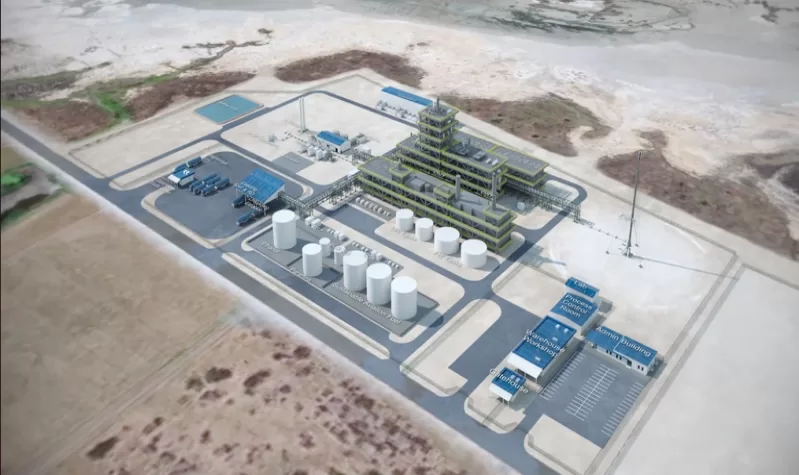Technip Energies joins Jet Zero’s bioethanol to Sustainable Aviation Fuel (SAF) project, Ulysses, located in North Queensland, Australia, after latest Front-End Engineering Design (FEED) contract award. The FEED contract entails engineering works, and general planning for the project. Technip will also oversee Project Ulysses’ cost estimation and the stipulation of project timelines.
Project Ulysses factsheet
- Project Ulysses utility: Bioethanol to Sustainable Aviation Fuel (SAF), and Renewable Diesel (RD) production
- Location: Townsville, North Queensland, Australia
- Cost: $36.81 million
- Developer: Ulysses Bioenergy Pty Ltd, Jet Zero Australia Pty Ltd
- Other key Investors: Airbus, Idemitsu, Qantas, Australian Renewable Energy Agency (ARENA)
- Project management and owner engineering services: Long Energy & Resources (LERA)
- Current project phase: FEED Study
- Project Ulysses FEED contractors: Technip Energies, LanzaJet
- FEED study cost: $36.8 million
- Upcoming phase: Engineering, Procurement and Construction (EPC) contract awards
- Estimated SAF production: 102 million liters annually
- Estimated renewable diesel production: 11 million liters annually
- Project Ulysses inception date: 1 September 2024
- Project commissioning date: 2028
Latest insights and contractors at Project Ulysses
Currently, Project Ulysses has completed feasibility studies, and has also secured a good line-up of financiers. It is now in the FEED study phase. This is overseen by global fuels technology player, Lazajet, and construction contractor, Technip, after the latest press release on Project Ulysses. Technip and Lanzajet join LERA who serves as a project manager, as contractors for Project Ulysses.
Named after North Queensland butterfly, , the project in Australia’s Townsville State Development Area seeks to produce renewable diesel and SAF from bioethanol. The two renewable fuels to be pumped into the aviation market are sourced from agricultural by-products. Set to deliver 11 million liters of renewable diesel and 102 million liters of SAF annually, Project Ulysses will utilize Lanzajet’s Alcohol-to-Jet (AtJ) technology.
Jet Zero’s Project Ulysses targets completion and commissioning by 2028. This will set precedence for the achievement of sustainability goals. At its core is the reduction of jet aircraft CO2 emissions. This is an estimated reduction of around 65% when compared to traditional fossil fuel, like jet kerosene, used in the aviation industry.
Janelle Poole MP, an Assistant Minister in Queensland termed Project Ulysses as a means for the exploration of “new industries across Queensland, particularly focusing on economic growth in the regions.”
Also read: SAF Industry Australia: Major Sustainable Aviation Fuel Project
Sustainability at Forefront of Jet Zero’s Project Ulysses
According to the International Energy Association (IEA), aviation accounts for up to 2.5% of global CO2 emissions. The number stood at 940.6 metric tons (Mt) of CO2 as of 2023. According to IEA, this number will surpass 1000 Mt of CO2 by 2030 if the aviation industry lags in change. This also sets the aviation industry’s emission growth rate in the two previous decades, higher than other means of transport like road and rail.
To achieve the global, and International Civil Aviation Organization’s, Net Zero by 2050 goal, several mechanisms have been put in place in the aviation sector. These include use of low carbon fuel like SAF and renewable diesel from bioethanol from Jet Zero’s Project Ulysses. These are also coupled by engineering and design changes to aircraft, like improving airframe and engine designs. Also proposed are technologies like electric or hydrogen-powered aircraft in place of kerosene-powered aircraft.
Jet Zero’s Project Ulysses and the local economy’s long-term outlook
Also in Project Ulysses’ long term development goals is the expansion Townsville economy. Jet Zero’s SAF and renewable diesel project in Townsville will create more than 100 operational jobs at the facility once its commissioned. This will also be superposed by the 1,000 construction jobs to be delivered once Project Ulysses starts construction. The project will also supply renewable diesel to the local Australian energy market, ramping up renewable energy use in sectors like mining, transport, and tourism.
In the rather, grand scheme of things, Project Ulysses also aims to make Townsville in Australia’s Northern Queensland a renewable energy hub. Also in Jet Zero’s Project Ulysses mission is to make Queensland a global leader in the low-emissions biofuels industry.
Other SAF project in Australia include Project Mandala. A partnership project steered by Jet Zero and Apeiron Bioenergy. It is currently advancing feasibility studies after grant funding award by the Australian Department of Foreign Affairs and Trade (DFAT) and Enterprise Singapore.

Leave a Reply